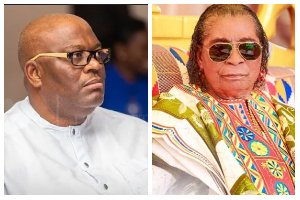

In Ghana’s current political landscape, a critical question has emerged following the Supreme Court’s recent ruling that reinstated the NPP’s majority status in Parliament. While this decision was met with celebrations from NPP parliamentarians, it has sparked an important debate about the practical implications for governing in a nearly evenly split legislature.
The Current Parliamentary Landscape
The NPP’s position as the majority party comes with significant responsibilities, particularly in advancing crucial government initiatives. Several high-stakes items await parliamentary consideration, including the 2025 Budget and Economic Policy Statement, various international loans totaling over $500 million, and the appointment of Supreme Court justices. These matters require urgent attention, yet their passage faces substantial procedural hurdles.
Constitutional Requirements and Their Implications
Ghana’s constitution establishes two distinct quorum requirements that significantly impact parliamentary operations. The first threshold – requiring one-third of MPs (92 members) for basic proceedings – appears manageable for the NPP majority. However, the second requirement presents a more formidable challenge: decision-making requires at least half of all MPs (138 members) to be present.
The Challenge
With exactly 138 MPs, the NPP’s majority status provides little room for maneuver. Perfect attendance would be necessary to meet the decision-making quorum – a practical challenge under normal circumstances, but particularly daunting with the December 7, 2024 elections approaching. The NDC’s threat to boycott parliamentary sessions until after the elections adds another layer of complexity to this delicate situation.
Looking Forward
This parliamentary dynamic underscores a broader reality of Ghana’s current political environment: despite holding a technical majority, the NPP faces significant challenges in unilaterally advancing government business. The situation suggests that effective governance might require a more collaborative approach, transcending strict party lines to achieve national objectives.
The current scenario raises important questions about the nature of parliamentary democracy and the balance between majority rule and the practical necessities of governance. As Ghana approaches its election period, the ability of Parliament to function effectively while maintaining democratic principles remains a critical concern for the nation’s political stability and development.






